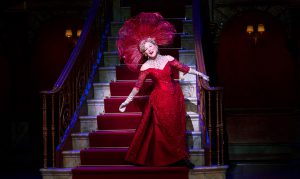
I hit the Broadway ticket jackpot recently — well, two of my friends did and I was lucky enough to reap the benefits. In one week’s time, I got to see two of the hottest shows on Broadway in 2017: Hamilton, still one of the most in-demand tickets as it approaches two years on Broadway, and the revival of Hello, Dolly! starring Bette Midler, which broke all first-day Broadway ticket sales records last September. Hamilton and Hello, Dolly!–complete opposites of the musical theatre spectrum, one would think. A month or two back, I wouldn’t have thought that I would find correlations in such different shows and relevance in our current political climate, nor would I see how much we need both of them today in the growth and influence of musical theatre itself.
A friend texted me a few weeks back to see if I was busy one evening, telling me he won a ticket lottery for Hamilton. I thought he was kidding. I bailed out on a board meeting that night (though my co-members were all for it — come on, Hamilton!) so I could go. Our seats were in the front row, all the way down to the right. I could hear the actors singing both live and through the monitors; I was almost hit with flying beads of sweat several times, I was that close. Now I am not a Hamilton obsessive. I’ve listened a few times to the Original Cast Recording, watched some YouTube clips, and I have looked through quite a bit of the big HamilTome (look it up). But I haven’t actively memorized any of it. But it didn’t change the fact that that night, I was excited — the spontaneity of getting to go; the proximity to the virtually bare stage; the ground-breaking elements of this musical presenting American history; and finally being in the room, yes, the room where it happened.
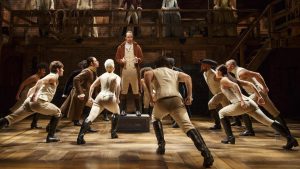
And the show didn’t disappoint. Even though there were at least three understudies on for major roles, and I don’t know how many were even left from the original cast, it didn’t matter. The cast was uniformly excellent, powerhouse performers communicating in fast rap, jazz riffs, and hip hop-infused choreography. The audience members were on the edges of their seats, resisting the urge to snap their fingers along with the opening number, but roused to thunderous applause time and time again as the biting lyrics coincidentally hit points reflected in today’s news, delivered with precision by the cast. The clean simple lines of the off-white knickers and corsets/vests that the ensemble members wore, the bare brick walls and wooden staircases and platform, and the way in which the central turntable kept the scenes transitioning seamlessly let the sung-through music and lyrics tell the story with minimal distraction. The show was an ensemble piece for the most part telling the story of Hamilton AND Burr, often with all actors on stage, many in multiple roles, weaving this story of the founders of our nation. It was a period piece in a most modern fashion.
For Hello, Dolly! a week later, the story was a little different. A friend went (at 4:00 AM) to queue up for standing room tickets for the Wednesday matinee. And she managed to get a pair for us. This time we were in the far back left of the orchestra–most theaters actually have numbered tags along the back wall where you can lean–almost the exact opposite of where I had been seated for Hamilton. A grand red drape with the simple show logo hung across the proscenium arch. Now I’ve listened to both the Broadway and film recordings of the show and have seen Dolly several times since childhood. It’s one of my favorites, and I know pretty much every word. As the more than 50-year-old overture started to play, I could see heads swaying in front of me as familiar strains washed over the excited crowd. Finally the grand drape opened on colorful, vaudevillian backdrops with sets dressed in the cheerful clutter of a hay and feed store or the purples and pinks of a ladies hat shop. Singers and dancers whirled across the stage in bright suits and dresses, or literally galloped around a staircase as actors farcically popped in and out from behind curtained restaurant booths. Subtle and modern, it was not. But it was glorious, and in the center of it all was a mega-watt force of Bette Midler, a leading lady of the highest caliber in a show designed for a star. Standing in the back, I was hard-pressed not to sway and dance myself bouncing on my heels during my favorite number, the brightly hued “Put on Your Sunday Clothes,” and regretting a little that I was already standing as the audience leapt to their feet in a mid-show standing ovation after the title number. It was magical.
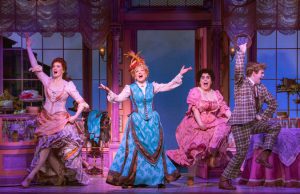
But here’s what I realized in the audience that day. We need both the Hamiltons and the Dollys in this world. We need the gems like Hello, Dolly! that stand up through the wear and tear of decades and shine that much brighter when brought into the light and are given glittering new productions, and we need the spare and edgy, forward-thinking modern musicals like Hamilton, because without one, the other cannot exist. Listen to Hamilton and you hear allusions not just to rap artists, but to Oscar Hammerstein’s lyrics from South Pacific. And it’s not just a matter of building upon what came before, it’s letting the air come back into the older shows and hearing the script and lyrics in the context of today, while celebrating the traditional structure and staging of a Golden Age show. Besides the title tune and Bette Midler’s initial entrance, the most vocal audience response at Hello, Dolly! was to the line, “Money… pardon the expression… is like manure. It’s not worth a thing unless it’s spread around encouraging young things to grow!” Cheers, applause, and woots! The reaction was as visceral as if it had been one of the pointed cabinet rap battles in Hamilton, with its witty revolutionary barbs that reflect in today’s politics.
Do I have a type of show I prefer? Sure, I’m a classic Broadway girl all the way, but there is a direct line from classics like Hello, Dolly! or Fiddler on the Roof to the mega musicals of the 80s like Miss Saigon or Les Miz to Hamilton or the current Broadway darling, Dear Evan Hansen. I think the big question is where will that line next loop around and where will it lead next? And how will today’s theatre students and future actors, composers/lyricists, and directors look to the past worlds of Jerry Herman, Rodgers & Hammerstein, or Cole Porter to become the next Pasek & Paul or Lin-Manuel Miranda? There’s room, and the need, for all of them. We don’t have to choose–and we shouldn’t.

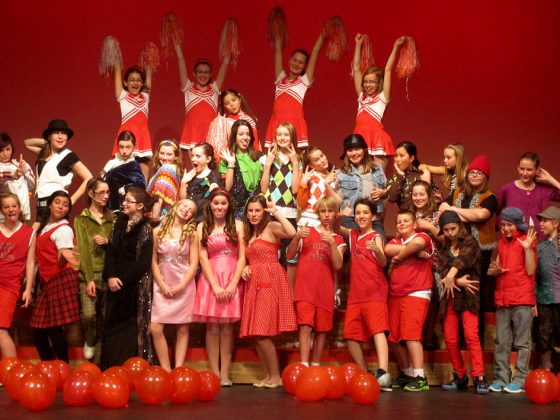
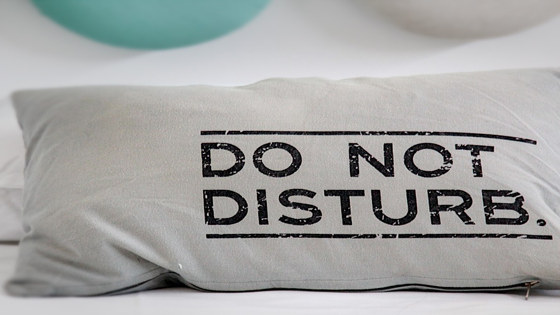
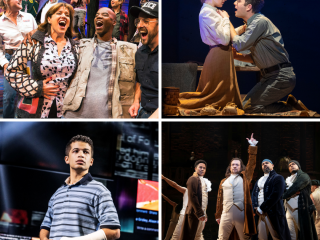

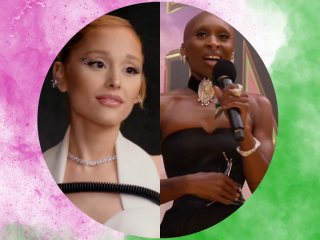

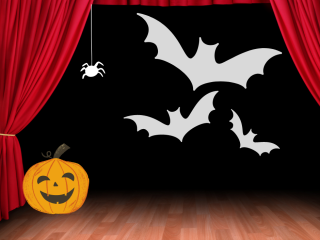
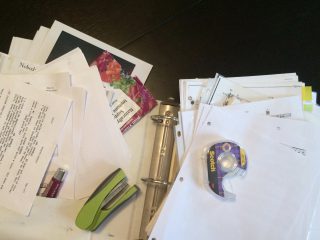
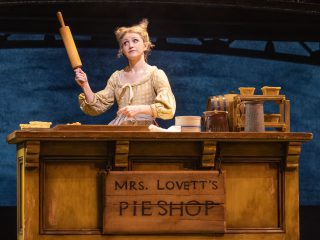
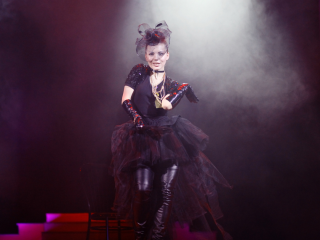




1 comment
Hamilton is the most successful musical in the history of broadway!